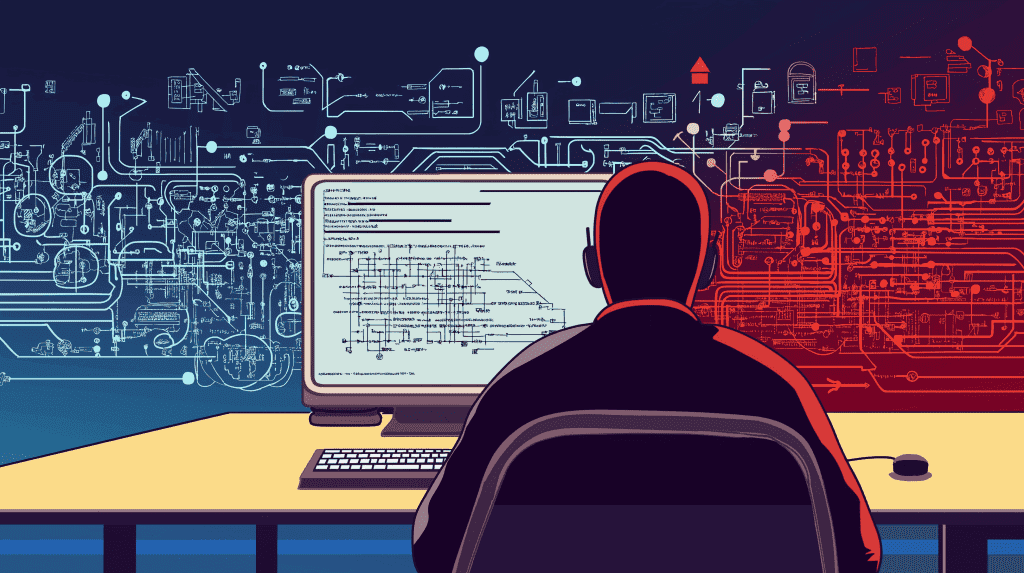Cognition AI's Extreme Work Culture: Windsurf Employees Face Tough Choice After Acquisition
3 Sources
3 Sources
[1]
This AI Startup Just Told Its Staff to Leave With a Check If They Can't Take the Heat
Now Cognition is in the spotlight again, not for another unexpected twist and turn in the acquisition saga, but because its CEO has made a surprising offer to the remaining Windsurf staff. Scott Wu has said Windsurf workers can leave, under favorable financial conditions, if they want. Given the fierce tussle between tech giants over who gets to hire the top AI engineering talent, this sounds odd. But Wu explained it quite simply: Windsurf staff who stay on can expect to suffer through "extreme" workplace conditions. Wu offered Windsurf's remaining 200-odd staff a buyout, after laying off 30 people, saying they would be able to receive nine months of pay on top of the cash they made as part of the July purchase of their company, news site The Information reported. It's an understandably tempting offer given that the alternative, per Wu's own words, are working for a company that doesn't "believe in work-life balance," where the average worker will "spend 6 days at the office" and regularly clock-up 80 hour-plus work weeks. In an X posting Wu went further, news site SFGate reported, explaining that he believed in an "extreme performance culture" where his staff regularly work through weekends and often achieve breakthroughs in the middle of the night. "Many of us literally live where we work," he wrote. As unsettling as this head-on rush to advance Cognition's ambitions seem, it's not exactly unprecedented in the AI jobs market. Just recently, a report revealed that in an effort to rival China's race to develop next-gen AI technology, many U.S. AI companies are pivoting to embrace the so-called "996" work plan. This grueling schedule, promoted by Chinese ecommerce giant Alibaba's CEO Jack Ma, has workers laboring in the office 9 a.m to 9 p.m. six days a week (Monday to Saturday). Critics have branded the practice modern slavery since, allowing for some 8 hours of sleep and perhaps 2 hours of travel and chores per day, it essentially leaves workers with just 2 hours of free time per day for most of the week.
[2]
Work-life imbalance: After buying remnants of Windsurf, Cognition lays off 30, tells rest to work long hours - The Economic Times
Cognition CEO Scott Wu took to X to acknowledge that his company has an extreme work culture, which it is clear about from the start with all those who join. "We know that people who joined Windsurf didn't expect to join Cognition and while we're proud of how we work, we understand it's not for everyone," the post read.Employees of artificial intelligence (AI) coding startup Windsurf have endured a chaotic few months. The company almost got acquired by OpenAI, which fell through when Google hired the chief executive and key talent from the company. Ultimately, another coding startup, Cognition, acquired the company, assuring the staff that it valued their top-level talent. However, three weeks after the deal, Cognition laid off 30 employees and gave the rest a tough choice. Either take a buyout, where employees would take 9 months' salary and exit the company, or come to work 6 days a week and at least 80 hours a week. This is one of the extremes of the work-life debate active across the world, especially in India. Cognition CEO Scott Wu took to X to acknowledge that his company has an extreme work culture, which it is clear about from the start with all those who join. "We know that people who joined Windsurf didn't expect to join Cognition and while we're proud of how we work, we understand it's not for everyone," the post read. "We know that we will lose some strong talent in doing this, but we truly believe the level of intensity this moment demands from us is unprecedented. While not everyone is looking for a culture like ours, everyone deserves respect and appreciation for their work," he said. According to The Information, this extreme culture is not uncommon. Employees at other companies in Silicon Valley, such as AI hiring startup Mercor and coding assistant Anysphere, also work seven days a week. Though lauded for his transparency, this move by Wu has drawn criticism, sparking a debate about extreme work expectations, employee wellbeing, and the push-and-pull between the so-called hustle culture and work-life balance within the tech industry. Many came to his defence, responding to his post with messages of support that "startups are not for everyone". One user said, "Acquisitions work like that - either you fit in (you're welcome) or you don't." Cognition Labs or Cognition AI is a San Francisco-based AI company founded in 2023 by Wu, Steven Hao, and Walden Yan. Its best known product is Devin, described as the world's first AI "software engineer" capable of autonomously handling entire software engineering workflows from bug fixing to writing and submitting code. The company was most recently valued at $4 billion after a major funding deal led by 8VC in March, doubling its valuation following a $175 million fundraise in April 2024.
[3]
'We Don't Believe In Work-Life Balance': $4B AI Startup Cognition Offers Windsurf Team 9-Month Buyouts Or 6-Day Workweeks
Enter your email to get Benzinga's ultimate morning update: The PreMarket Activity Newsletter Once in talks to be acquired by OpenAI for $3 billion earlier this year, AI coding startup Windsurf announced it is now part of $4 billion artificial intelligence company Cognition, after a takeover three weeks ago. The acquisition brought roughly 200 Windsurf employees under Cognition's control, and those employees have been given a choice: commit to an intense schedule of six days in the office and more than 80 hours per week, or accept a buyout worth nine months' of salary, The Information reports. Trending Investment OpportunitiesAdvertisementFundriseBuy shares of homes and vacation rentals for as little as $10. Get StartedWiserAdvisorGet matched with a trusted, local financial advisor for free.Get StartedRobinhoodMove your 401k to Robinhood and get a 3% match on deposits.Get StartedCognition CEO Scott Wu Says Culture is Built on "Extreme Performance" Cognition CEO Scott Wu told employees in an internal email that "we don't believe in work-life balance -- building the future of software engineering is a mission we all care so deeply about that we couldn't possibly separate the two," according to The Information. Don't Miss: The same firms that backed Uber, Venmo and eBay are investing in this pre-IPO company disrupting a $1.8T market -- and you can too at just $2.90/share. 'Scrolling To UBI' -- Deloitte's #1 fastest-growing software company allows users to earn money on their phones. You can invest today for just $0.30/share. Wu later posted on X that Cognition has "an extreme performance culture" and is upfront about expectations during hiring. "We routinely are at the office through the weekend and do some of our best work late into the night," Wu wrote. "Many of us literally live where we work. We know that people who joined Windsurf didn't expect to join Cognition, and while we're proud of how we work, we understand it's not for everyone." Windsurf's Tumultuous Path to Acquisition Founded with the goal of creating "the most powerful way to code with AI," Windsurf says it has amassed more than a million users worldwide. Its features include Cascade, a deep codebase analysis tool, and Tab, an autocomplete function that integrates into coding workflows. Before the Cognition deal, Windsurf was in acquisition talks with OpenAI for $3 billion, Entrepreneur says, though those negotiations collapsed in July. Days later, Google agreed to pay $2.4 billion for nonexclusive licensing rights to Windsurf's technology and to hire former Windsurf CEO Varun Mohan, co-founder Douglas Chen, and several researchers. The remainder of Windsurf's staff and assets were acquired by Cognition on July 14. Trending: Jeff Bezos-Backed Arrived Homes Hits A Big Sale On Charlotte Property - Investors Earning A 34.7% Return "After today, our efforts will be as a united and aligned team. There's only one boat and we're all in it together," Wu wrote in a memo sent to staff, The Information reports. Windsurf interim-CEO Jeff Wang said in the company's acquisition announcement that Cognition was the "obvious right choice" to lead the next chapter for the AI coding startup. He added that Cognition was "the only team we were scared of" and "the one we have respected the most" among AI companies, calling the $4 billion firm a "perfect fit" to take Windsurf into its next phase. Cognition's flagship product, Devin, is billed as the first autonomous software engineer, able to interact with users through Slack and GitHub to handle complex codebases, Entrepreneur says. See Also: Kevin O'Leary Says Real Estate's Been a Smart Bet for 200 Years -- This Platform Lets Anyone Tap Into It According to Windsurf, Wu's acquisition strategy brings Windsurf's integrated development environment under the same umbrella as Devin, enabling engineering teams to plan tasks, delegate work to Devin, complete complex components themselves, and have the results assembled in a single environment. Generous Payouts and Long Hours Define Windsurf's New Chapter Under Cognition The nine-month severance package is significantly higher than the typical tech buyout of four weeks plus an additional week per year of service, according to CNBC. Entrepreneur says that some view Cognition's demands as proof of its drive to innovate at breakneck speed, while others warn the pace could push talent away. Cognition has raised more than $300 million from investors, including Founders Fund, and reached unicorn status earlier this year. Read Next: Named a TIME Best Invention and Backed by 5,000+ Users, Kara's Air-to-Water Pod Cuts Plastic and Costs -- And You Can Invest At Just $6.37/Share Image: Shutterstock Market News and Data brought to you by Benzinga APIs
Share
Share
Copy Link
After acquiring AI coding startup Windsurf, Cognition AI offers remaining employees a choice between a generous buyout or committing to an intense work schedule, sparking debate about work-life balance in the tech industry.
Cognition AI's Acquisition of Windsurf and Controversial Work Culture
In a surprising turn of events, AI startup Cognition has acquired Windsurf, a coding startup, and is now making headlines for its controversial approach to work culture. The acquisition, which took place three weeks ago, has left Windsurf's approximately 200 employees facing a tough decision
1
2
.
Source: Benzinga
The Ultimatum: Extreme Work or Generous Buyout
Cognition's CEO, Scott Wu, has presented Windsurf employees with two options:
- Commit to an intense work schedule of six days in the office and more than 80 hours per week.
- Accept a buyout offer worth nine months of salary.
This ultimatum comes after Cognition laid off 30 Windsurf employees following the acquisition
2
. Wu has been transparent about the company's "extreme performance culture," stating, "We don't believe in work-life balance -- building the future of software engineering is a mission we all care so deeply about that we couldn't possibly separate the two"3
.The '996' Work Culture in AI
Cognition's approach is not unique in the AI industry. Many U.S. AI companies are adopting the "996" work plan, popularized by Chinese e-commerce giant Alibaba's CEO Jack Ma. This schedule involves working from 9 a.m. to 9 p.m., six days a week
1
. Critics have labeled this practice as modern slavery, leaving workers with minimal free time.Industry Context and Competition
The AI industry is experiencing fierce competition for top talent. Windsurf itself was previously in acquisition talks with OpenAI for $3 billion, which fell through when Google hired key talent from the company
2
3
. This intense competition may be driving companies like Cognition to push for extreme productivity.Cognition's Vision and Products
Cognition, valued at $4 billion, is known for its product Devin, described as the world's first AI "software engineer" capable of autonomously handling entire software engineering workflows
2
. The acquisition of Windsurf is seen as a strategic move to integrate Windsurf's development environment with Devin3
.Related Stories
Reactions and Debate
Wu's approach has sparked a debate in the tech industry about work expectations, employee wellbeing, and the balance between hustle culture and work-life balance. While some have criticized the extreme work culture, others have defended it, arguing that "startups are not for everyone"
2
.
Source: ET
Financial Implications
The nine-month severance package offered by Cognition is significantly higher than the typical tech buyout, which usually consists of four weeks plus an additional week per year of service
3
. This generous offer, combined with the intense work expectations, highlights the high stakes in the AI industry.
Source: Inc.
As the AI sector continues to evolve rapidly, the incident at Cognition raises important questions about sustainable work practices, innovation speed, and the human cost of technological advancement. The outcome of this situation may set precedents for how other AI companies approach work culture and talent retention in the future.
References
Summarized by
Navi
Related Stories
Google Snags Windsurf's Top Talent, Cognition Acquires Company in AI Coding Frenzy
12 Jul 2025•Business and Economy

Cognition AI Secures $400M Funding, Reaching $10.2B Valuation Amid AI Software Engineering Boom
09 Sept 2025•Technology

Google Co-founder Sergey Brin Pushes for 60-Hour Workweeks in AI Race
01 Mar 2025•Technology

Recent Highlights
1
ByteDance Faces Hollywood Backlash After Seedance 2.0 Creates Unauthorized Celebrity Deepfakes
Technology

2
Microsoft AI chief predicts artificial intelligence will automate most white-collar jobs in 18 months
Business and Economy

3
Google reports state-sponsored hackers exploit Gemini AI across all stages of cyberattacks
Technology





